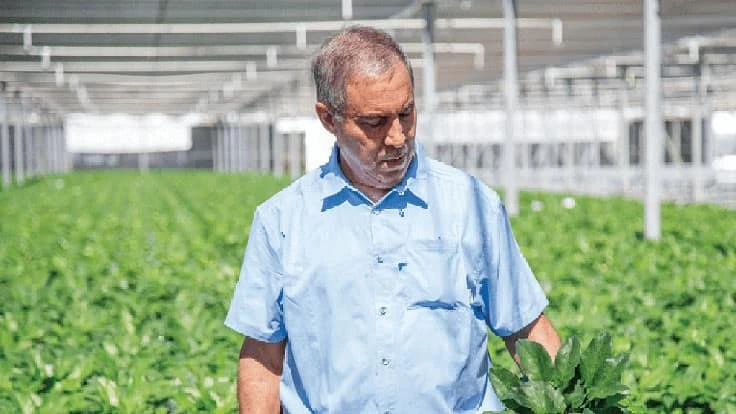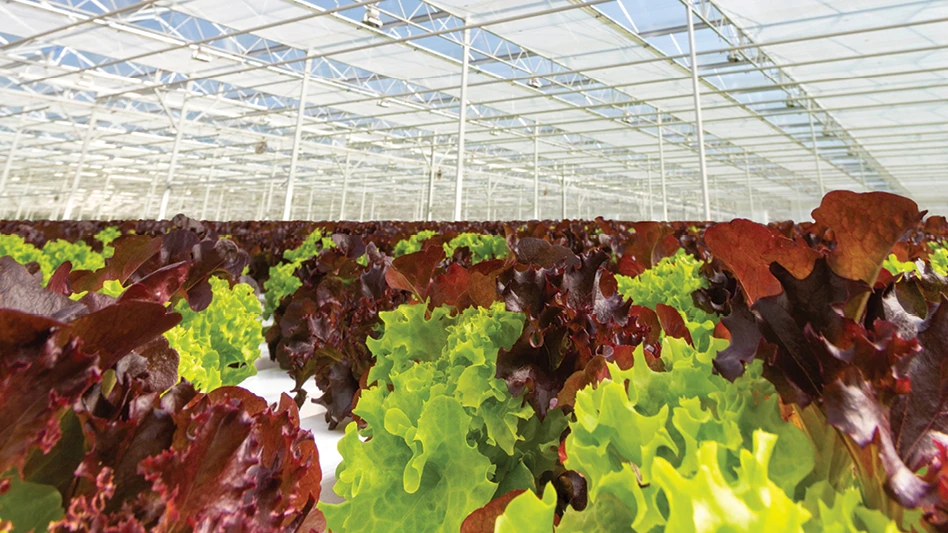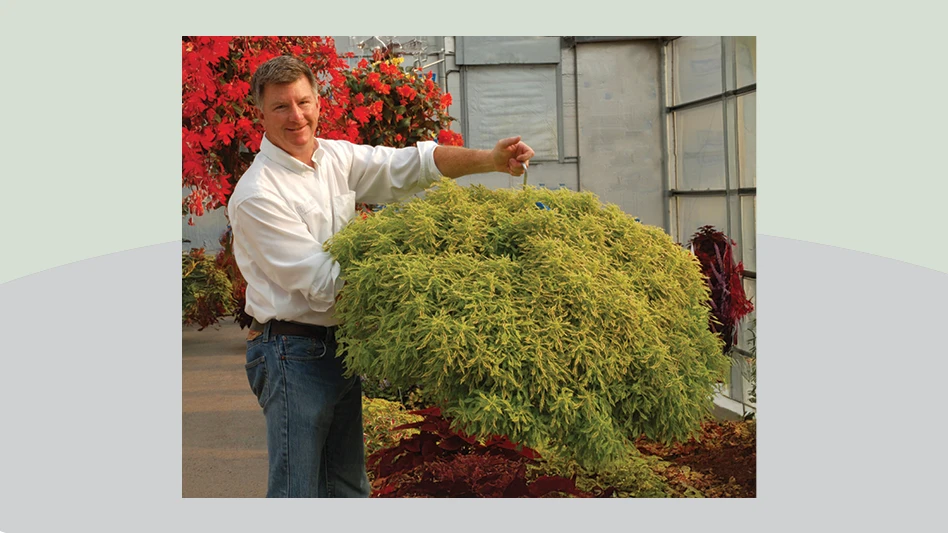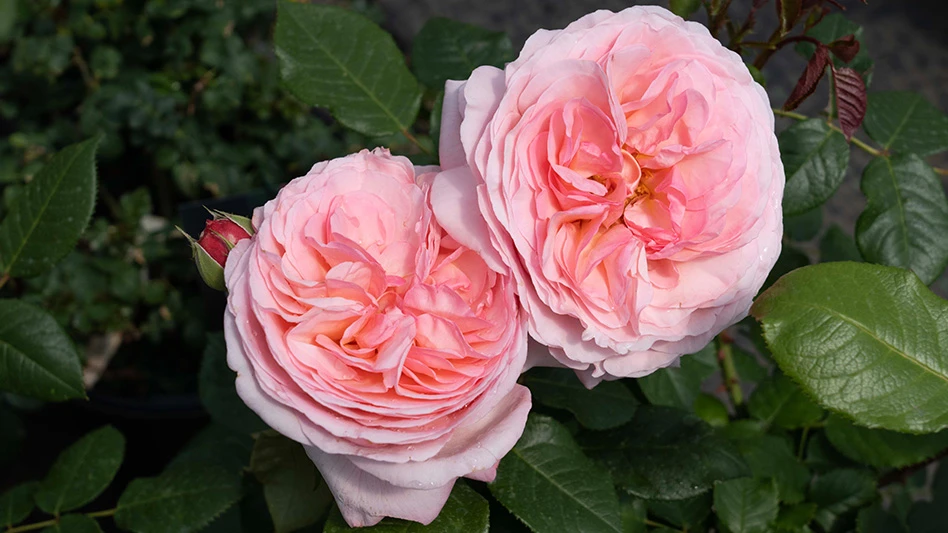

J.R.R. Tolkien wrote, “…Not all those who wander are lost.” It takes a lot of wandering to find “the one” — the plant that will amaze consumers and become the next social media sensation. Mike Rimland, director of research and development for houseplants at Costa Farms, has spent more than 40 years exploring the globe, building relationships, and bringing back phenomenal plants to the U.S.
Some of his discoveries are part of Costa’s Trending Tropicals Collection.
The collection is designed to introduce the consumer to extraordinary plants from all over the world. Selections are expected to create a buzz among consumers and be easy for the average person to care for.
“Our number one priority is the consumer has to be successful with a plant before we add it to our Trending Tropicals Collection,” Mike says.
To fit that criteria, the plant potentials are subjected to a possibly perilous test.
“When I’m ready to see what the plant can do, I stick it in a box, put it in an air-conditioned room or closet with no light for two weeks,” Mike says. “It has to come out clean. It can’t have any bad leaves. And weeks later, it can’t have any lingering effects, either.”
Once a selection passes that first grueling test, the Costa Farms team evaluates the plant for production capabilities, ensuring they can produce large numbers of the plant.
“We spend a year or two confirming if it’s commercially viable. All the stars have to line up,” he says.
If it’s not going through tissue culture, the plant is sent to Menachem Ganon, Costa’s head of offshore production in the Dominican Republic.
“He’s in charge of taking the one or two, sometimes five or ten, plants we have and reproducing the thousands that we need,” he says.
It’s imperative that Costa builds up stock and produces the volume needed to be introduced through the Trending Tropicals line, he adds.
_-_Raven_ZZ_fmt.png)
The collection
Some of the plants in the collection include Raven ZZ, Monstera ‘Thai Constellation,’ Calathea Network, Fiddle leaf ‘Little Fiddle and Polka Dot begonia.
Raven ZZ (Zamioculas zamiifolia) features purple-black foliage and, like the original ZZ, has a high tolerance to a wide range of growing conditions. This selection came out of Asia and Costa is the exclusive North American breeder.
Monstera deliciosa ‘Thai Constellation’ is a variegated selection with large, glossy cut leaves and small splashes of creamy white. Monsteras are wildly popular, especially on social media. They have their own hashtag #monsteramonday.
Calathea musaica Network offers a stronger variegation, a fuller shape and it’s “not as finicky as other Calathea,” Mike says.
‘Little Fiddle’ is a mutation that was found in Europe. It’s a tidy, compact variety suitable for smaller spaces. The massive popularity surrounding fiddle leaf fig helped get Mike’s attention for this selection.
Polka Dot begonia (Begonia maculata) is a Brazilian native with large, wing-shaped leaves adorned with silver dots that provide an interesting contrast to the dark-green background color.
There’s a lot in the Costa Farms R&D pipeline and the nursery will continue to add to the Trending Tropicals collection in the coming years.
“Our pipeline is full of plants. Some you haven’t seen yet, but we’re certain these will be on trend because they fit into home décor so perfectly,” Mike says. “Even I can’t believe how amazing some of these plants are and how the collection is developing.”
The collection includes innovative and commercially rare varieties.
“There are two definitions of ‘rare.’ The collector rare includes plants you find on the side of a hill in the Philippines that no one has seen and commercially rare is when no one is producing any volume of the plant. You tend to find these through internet sources where prices are very expensive,” Mike says. “Our goal is to take the commercially rare plants that we believe are easier for the end consumer and produce the volume that will bring the prices down, as well as bring them to the local stores where they shop.”
The quest for plants
Mike has been in the nursery business for 44 years, but his career has been shaped by people more than plants.
“I’ve traveled all over the world building relationships with people. It’s about the person breeding the plant, their family, their children,” he says. “Many of these plants come from a backyard breeder growing in a tiny shade house. They’re not breeding to make a lot of money. They just love those plants.”
It’s sharing a meal with someone, and in one instance that meant Mike eating a fluorescent green soup of unknown origin. It’s making connections and sharing the passion for plants.
He’s traveled across Asia and through central Africa to places like Cambodia, Myanmar, Kenya and Uganda. Plant exploration takes a lot of groundwork.
“You’re not just getting on a plane and landing in a country and looking at a lot of plants,” he explains. “There are a lot of people involved. I’m looking at garden centers, plant shops, on sides of mountains, meeting with breeders and collectors — just about any place you can imagine.”
Of course, there’s no guarantee he’ll find anything on any given trip, but “if you don’t go, you don’t know,” he says.
It’s not always the plant people who help Mike find new selections.
“Maybe 15 or 20 years ago, I was in Southeast Asia talking to someone in a bar who wasn’t even in the plant business. We exchanged cards, and months after I was home, I got an email from a breeder who knew the guy in the bar. You never know where you’re going to find the next introduction. Sometimes it’s like looking for a needle in a haystack.”
While it sounds like the world’s coolest job, Mike’s plant adventures have presented a few obstacles. He’s been in the middle of a military coup in Southeast Asia. He’s been lost on a mountain in the Philippines. He’s been in an earthquake in central Asia. He needed a root canal in Myanmar where the local dentist had a Black & Decker drill on the table. Experiences like that haven’t fazed him. Mike is ready to get back on the road and meet a devoted breeder that just may be growing the next plant obsession.

Explore the February 2022 Issue
Check out more from this issue and find your next story to read.
Latest from Greenhouse Management
- North Carolina Nursery & Landscape Association announces new executive vice president
- Plant Development Services, Inc. unveils plant varieties debuting in 2025
- Promo kit available to celebrate first National Wave Day on May 3
- Applications now open for American Floral Endowment graduate scholarships
- Endless Summer Hydrangeas celebrates 20 years with community plantings
- Invest in silver
- Garden Center magazine announces dates for 2025 Garden Center Conference & Expo
- USDA launches $2 billion in aid for floriculture growers





